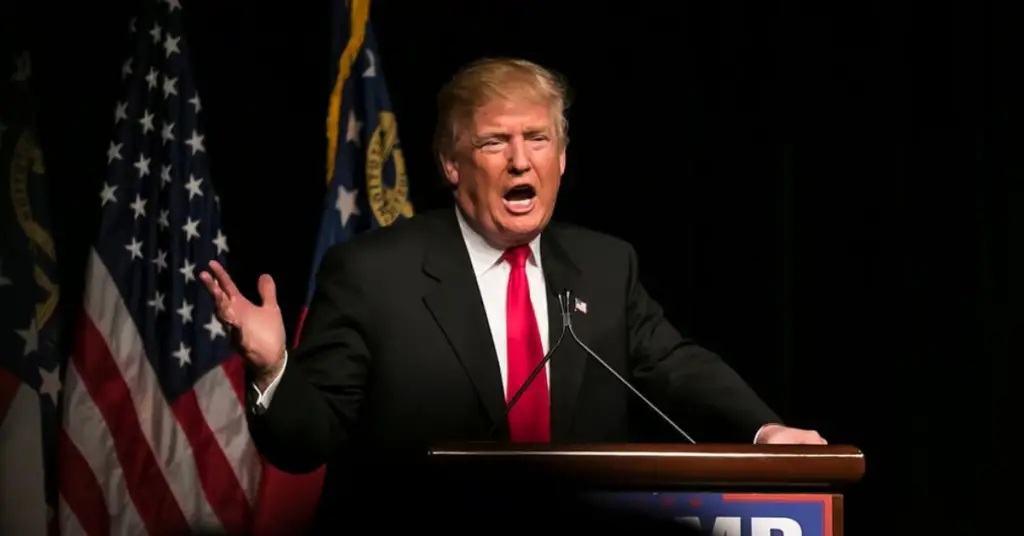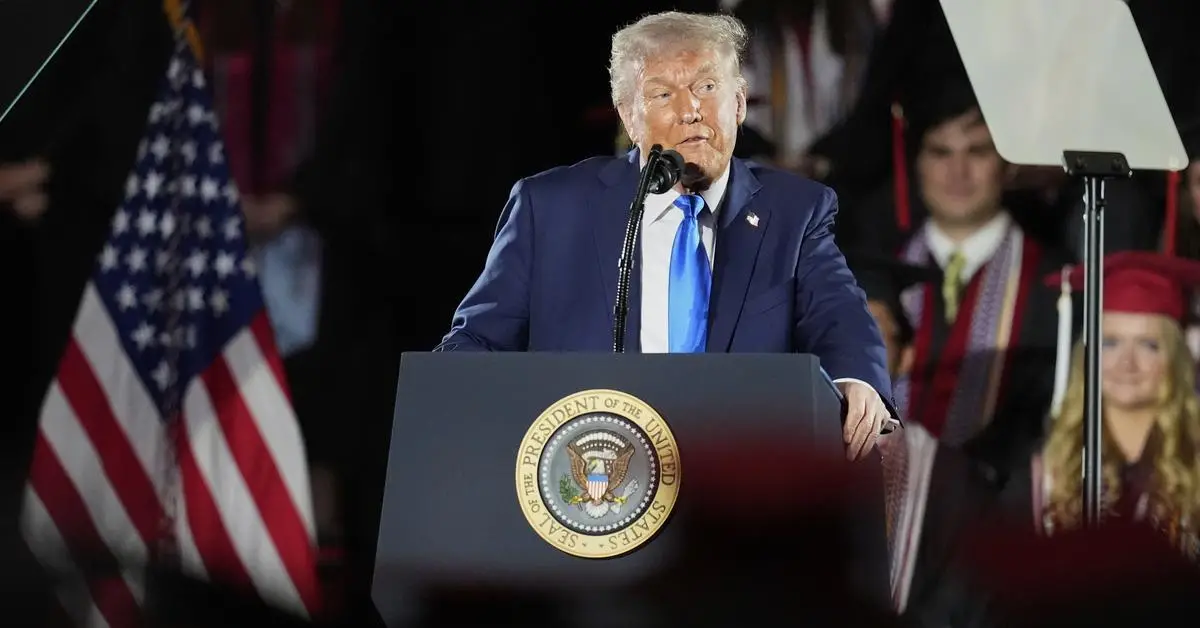A U.S. District Judge, appointed by former President Donald Trump, has ruled that the deportations carried out by the Trump administration under the Alien Enemies Act (AEA) were unlawful. This ruling involves the controversial deportation of alleged gang members to a notorious mega-prison in El Salvador. This decision could have significant implications for future immigration and deportation policies in the U.S.
The case began when a group of alleged gang members, mostly from El Salvador, were deported back to their home country under the authority granted by the Alien Enemies Act. This law allows the U.S. government to deport non-citizens who are deemed to be a threat to national security. In this instance, the deportations were carried out based on accusations that these individuals were involved in violent gang activities, such as those associated with the notorious MS-13 gang.
The ruling, issued on Thursday by U.S. District Judge Fernando Rodriguez Jr., found that the Trump administration misused the Alien Enemies Act. Judge Rodriguez argued that the administration’s interpretation of the law and its application in these deportation cases were an overreach of executive power. Specifically, he emphasized that the decision to invoke the AEA should not lie solely with the President, without any checks or limitations on that power.
In his written opinion, Judge Rodriguez stated, “Allowing the President to unilaterally define the conditions when he may invoke the AEA, and then summarily declare that those conditions exist, would remove all limitations to the Executive Branch’s authority under the AEA.” This is a direct challenge to the Trump administration’s approach to using the Alien Enemies Act, which allowed them to send individuals back to their home countries, often without due process or proper oversight.
The ruling has sparked significant debate. Supporters of the Trump administration’s policy argue that these deportations were necessary for national security. They claim that deporting individuals who are members of violent gangs, especially those with ties to international crime syndicates, is essential for protecting U.S. citizens. Critics, however, argue that the use of the Alien Enemies Act in this context was an abuse of power and a violation of both U.S. and international law.
The case has also raised concerns about the U.S. government’s practices regarding the detention and treatment of immigrants, particularly those who are deported to countries with poor human rights records. The deportations in question involved sending individuals to a prison in El Salvador that has been widely criticised for its overcrowding, violence, and inhumane conditions. Human rights groups have raised alarms about the safety of these deportees and the potential for abuse upon their arrival in El Salvador.
In response to the ruling, various human rights organisations have hailed it as a victory for immigrant rights and a necessary check on executive power. “This ruling reaffirms the importance of the rule of law and the need for oversight in matters of national security,” said one spokesperson for the American Civil Liberties Union (ACLU). “The Trump administration’s approach to deportations was not only unlawful but also inhumane. This decision is a step toward ensuring that future deportations are carried out with respect for human rights.”
The ruling also brings attention to the broader debate about the scope of executive powers, especially in matters related to immigration enforcement. The Alien Enemies Act, which was passed in 1798, allows the President to deport individuals from the U.S. if they are deemed to be a threat to national security. However, critics of the Trump administration’s use of the law have argued that it was applied too broadly and without sufficient legal justification in this case.
This decision is likely to have a ripple effect on future cases involving deportations and the use of the Alien Enemies Act. It could set a precedent that limits the ability of future administrations to use the law in the same way that the Trump administration did. The ruling also raises questions about how future administrations will approach immigration enforcement and deportation policies, particularly in the context of national security concerns.
The case comes at a time when immigration remains a highly contentious issue in U.S. politics. With the Biden administration now in power, there is a shift in policy, with a focus on reversing many of the hardline immigration measures implemented under the Trump administration. The ruling by Judge Rodriguez may influence how the Biden administration handles deportations, particularly in cases involving individuals with criminal records or ties to gangs.

One key aspect of this ruling is the emphasis on checks and balances within the U.S. legal system. Judge Rodriguez’s decision highlights the importance of ensuring that executive powers are exercised with appropriate oversight. By ruling that the Trump administration overstepped its authority, the judge has reinforced the idea that even in matters of national security, the government must adhere to the principles of the Constitution and respect the rights of individuals.
This case also serves as a reminder of the importance of judicial independence in the U.S. legal system. Despite being appointed by a Republican president, Judge Rodriguez’s ruling demonstrates that judges are not beholden to political figures or ideologies. His decision was based on legal principles, rather than political motivations, and reflects the crucial role that the judiciary plays in upholding the rule of law.
As the story develops, it will be important to watch how this ruling impacts the broader immigration debate. Legal experts predict that the decision could lead to additional challenges to deportation practices, especially in cases where individuals face unsafe conditions upon their return to their home countries. It could also lead to further legal battles regarding the extent to which the Executive Branch can wield powers granted by laws such as the Alien Enemies Act.
This ruling has already triggered responses from both sides of the political spectrum. While those in favor of more stringent immigration enforcement argue that this decision undermines efforts to keep the U.S. safe, opponents contend that it is a much-needed step toward ensuring that deportations are carried out fairly and in accordance with U.S. and international law.
The Trump administration’s use of the Alien Enemies Act in this context has been one of the most controversial aspects of its immigration policy. This case highlights the ongoing tensions between national security concerns and the protection of individual rights. The debate is far from over, and it is likely that future administrations will continue to grapple with how to balance these competing interests.
The ruling may also have implications for how the U.S. approaches international law and human rights in its immigration policies. Sending individuals to countries with poor human rights records, such as El Salvador, has raised ethical questions about the U.S. government’s responsibility toward those it deports. As such, the decision could influence how future administrations address the treatment of deportees and the conditions they face in foreign prisons.
This case marks a significant moment in the ongoing struggle over immigration policy in the U.S. and the role of the Executive Branch in shaping that policy. It may pave the way for further legal challenges to immigration enforcement practices and could help to redefine how laws like the Alien Enemies Act are applied in the future.
Disclaimer: This article has been meticulously fact-checked by our team to ensure accuracy and uphold transparency. We strive to deliver trustworthy and dependable content to our readers.




